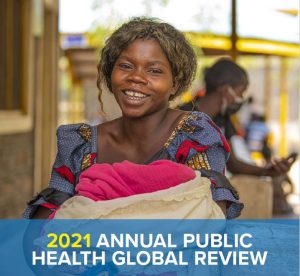Malnutrition on the rise among refugees
A perfect storm of global crises have combined to push up levels of acute malnutrition in dozens of refugee locations across the world, most of them in Africa, according the UN’s refugee agency UNHCR.
A new report, the ‘2021 Annual Public Health Global Review’, reveals a significant deterioration in the nutritional condition of refugees in camps and other temporary sites.
Monitoring refugees’ nutritional status resumed last year after stopping in 2020 because of COVID-19 restrictions.
The report says a third of the 93 sites surveyed in 12 African countries and in Bangladesh showed serious levels of global acute malnutrition, a measurement of a population’s nutritional status, and 14 per cent of locations recorded life-threatening levels of malnutrition.
“Refugee nutrition status is a growing concern due to the combined impact of reduced humanitarian funding and multiple shocks including food insecurity, impact of COVID-19 pandemic restrictions and limited legal access to employment/livelihood opportunities,” the report said.
“In a context with combined multiple shocks including growing food insecurity, impact of Covid-19 pandemic restrictions and limited livelihood opportunities, 33 per cent of these sites had a serious global acute malnutrition prevalence, and 14 per cent were above the critical emergency threshold of 15 per cent prevalence.
“Stunting amongst children aged 6-59 months remained concerning: 54 per cent sites had stunting prevalence above the critical 30 per cent level. Only 4 per cent of sites met the standard for anaemia and general micronutrient status, while 34 per cent and 62 per cent had serious and critical levels of anaemia respectively,” the report said.
 UNHCR spokeswoman Shabia Mantoo said the rates of malnutrition were particularly troubling as they were recorded before the war in Ukraine sent food and commodity prices rising.
UNHCR spokeswoman Shabia Mantoo said the rates of malnutrition were particularly troubling as they were recorded before the war in Ukraine sent food and commodity prices rising.
“This is a key concern because nutritional intake is really key to building healthy and resilient communities,” Ms Mantoo said.
“The leading causes of illness for refugees remain upper respiratory tract infections and malaria and lower respiratory tract infections. And we had non-communicable diseases also accounting for about 5 per cent of consultations as well as mental health services.”
The report comes amid the last effects of the COVID-19 pandemic and record levels of people being forcibly displaced by conflict, violence, and natural disasters.
Despite these problems, the UNHCR says gains were made in the inclusion of refugees into national health policies. A survey of 46 countries found 76 per cent included refugees in their national health plans and practically all refugees were able to use primary health facilities.
In another promising result, by the end of last year, the report says 162 countries had included refugees and asylum-seekers in national COVID-19 vaccination plans.
Read the full report: UNHCR – 2021 Annual Public Health Global Review












